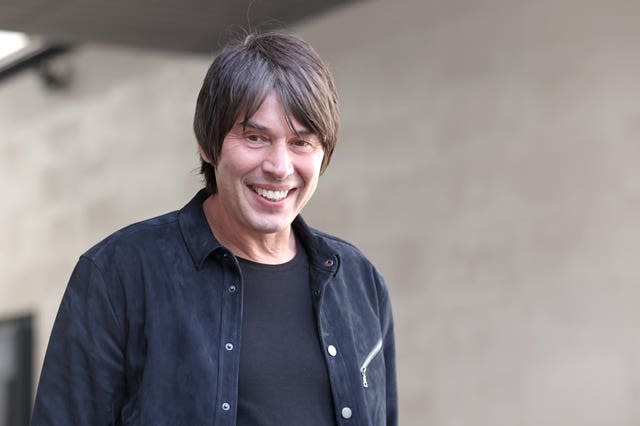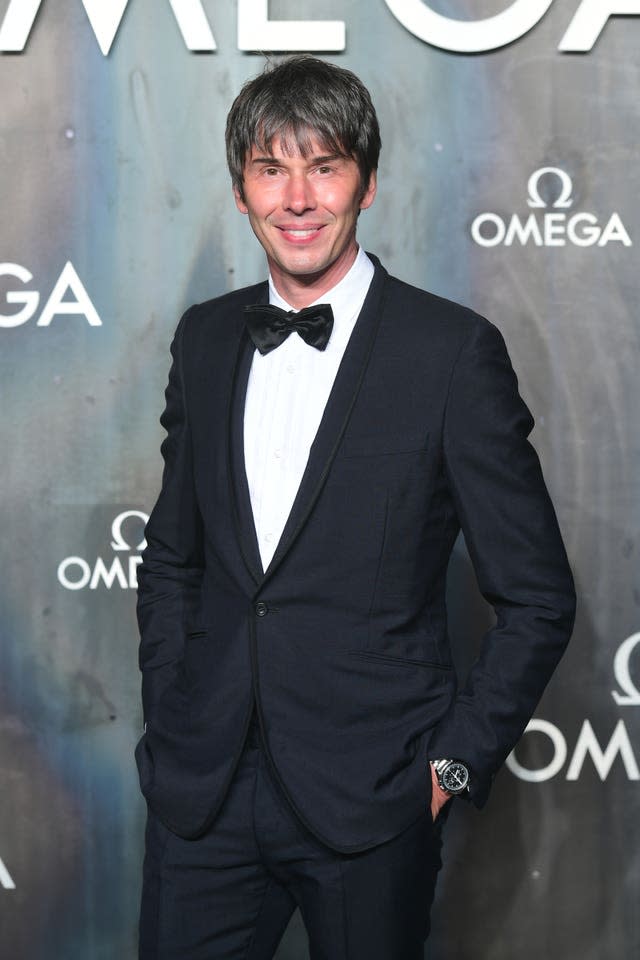Brian Cox hopes new Classic FM show will get listeners looking at the universe
Professor Brian Cox hopes a new Classic FM show will encourage listeners to look at the “existential terror of the universe”.
The English physicist, 56, who was a keyboard player for bands Dare and D:Ream, is known for presenting BBC science programmes Wonders Of The Solar System, Forces Of Nature and Stargazing Live.
He will join Global’s Classic FM station to host his first Saturday show from 9pm to 10pm for six weeks.

The programme called Symphony Of Science With Brian Cox is themed around composers and the cosmos, and will not draw on the Manchester University professor of particle physics’ rock music beginnings.
Asked if he hopes people can stargaze listening to the classical music, Cox told the PA news agency: “There’s no substitute for going out and experiencing the existential terror of the universe by looking at it.
“I hope they’re (listeners) out there maybe listening to some of these great pieces of music and then look at the stars and get even more terrified… it will scare the audience into running back inside and putting the music on.
“And finding even less comfort then, because then you listen to (Richard) Wagner or (Richard) Strauss or something, whose inspired by (existentialist writer Friedrich) Nietzsche and (it’s) even more terrifying.”

When asked if he was hoping to terrify people, Cox said it is the “appropriate response to our position within nature”, before saying that he wants to “encourage people not to hide but to face the full terror of the infinite”.
He will also examine composers, classical music eras and the corresponding scientific discoveries as well as scientists who play and compose music, physics in films, and the science of music – exploring the Mozart effect and music theory.
Cox said that though science can explain reality and “the size and scale of the observable universe”, it does not reveal what we should be making of the world.
“I’ve believed, for a very long time, that music and for that matter literature, philosophy, (these are) a different light, that we can shine on that problem,” he added.
“I’ve never thought of music and science and the arts in general of being distinct pursuits or separate from each other, I think they’re all ways in which we humans explore our reality and our place in history.”
He added that music and theories can coincide, highlighting that in 1915 theoretical physicist Albert Einstein published his theory of relativity and Finnish composer Jean Sibelius released his fifth symphony.
“Both those things can be seen in a way that’s feeding into that zeitgeist or perhaps representations of it,” Cox added.
“And so I think it’s interesting to take snapshot in time, and listen to the music that was being written and performed at that time, and the scientific ideas that were being generated or discovered.”

Music will include English composer Gustav Holst’s The Planets, Also Sprach Zarathustra by Strauss as well as works from Renaissance and Baroque composers such as William Byrd and Johann Sebastian Bach, and soundtracks by Joker film composer Hildur Guonadottir and Wendy Carlos, known for A Clockwork Orange.
“The hope is that if there are people with an interest in science but have not really thought about this kind of music before, and we are talking about some of the greatest music ever written, then they’ll be introduced to it,” Cox said.
“And we’re hoping that people who are into music, but maybe not so much the scientific aspects will also be introduced to the idea.
“So I’m hoping that there are multiple audiences here and… anyone who listened to it gets introduced to something new, be it a scientific idea or musical idea, then that’s wonderful.”
Symphony Of Science With Brian Cox begins on Saturday at 9pm, and will last for six weeks.

 Yahoo News
Yahoo News 
